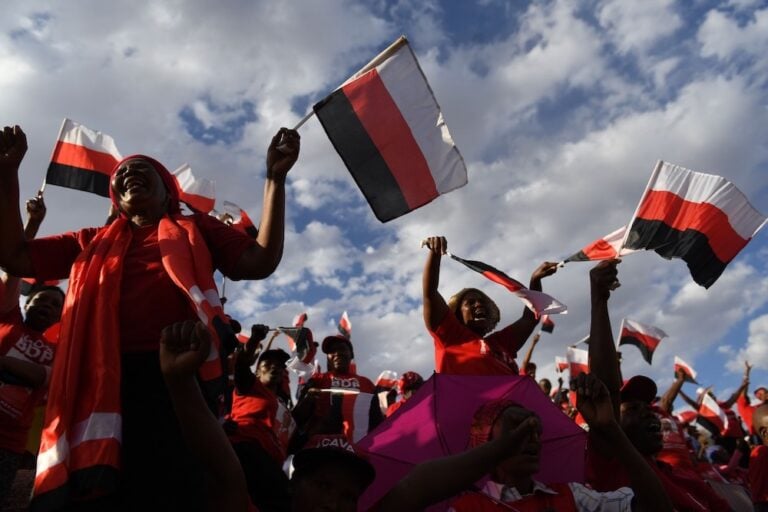Secrecy charges against two journalists working for the weekly “Mmegi” newspaper were dismissed by the Lobatse High Court on 28 February 1995. The two journalists, “Mmegi” managing editor Titus Mbuya and freelance reporter Professor Malema, were accused in the early 1990’s under the National Security Act of unlawfully receiving “an official document marked `secret'” and […]
Secrecy charges against two journalists working for the weekly
“Mmegi” newspaper were dismissed by the Lobatse High Court on 28
February 1995. The two journalists, “Mmegi” managing editor Titus
Mbuya and freelance reporter Professor Malema, were accused in
the early 1990’s under the National Security Act of unlawfully
receiving “an official document marked `secret'” and publishing
classified information. The charges related to “Mmegi”‘s
publication in November 1991 of information contained in a
document outlining government policy on workers’ demands made
during a general strike. The document was stamped “secret.” The
charges were finally dismissed in the High Court because the
State failed to submit the necessary documents to the court.
“Mmegi” editor Sechele Sechele believes the government’s failure
to submit the documents was a face-saving exercise, as the state
“realized they didn’t have a case….They found a way of stopping
the case without embarrassing themselves,” says Sechele, adding
that the State was required to prove that publication of the
document could have jeopardized national security. The “Mmegi”
case dragged on for more than two years and cost the paper
approximately 5000 Pula (equivalent to US$1800) in legal fees.
According to MISA, the case is unlikely to set a media freedom
precedent. MISA affirms that the judgement will do little to
relieve journalists of the threat of the National Security Act,
which gives the government sweeping powers to withhold
information. The law’s definition of national security is very
broad and effectively allows the government to classify any
information as secret. “It (the High Court’s 28 February
decision) doesn’t say there is anything wrong with the National
Security Act,” says Dr. Bojosi Otlhogile, Head of Law at the
University of Botswana. Those found guilty of breaking the
National Security Act can face up to 25 years in prison, and
publication of classified information cannot be defended on
grounds of public interest.
Recommended Action
Send appeals to Botswana authorities:
breach of international standards of media freedom
expression be reviewed in consultation with journalists as a
matter of urgency
Appeals To
Attorney-General Phandu Skelamani
Private bag 009
Gaborone, Botswana
Fax: +267 357089
PLEASE NOTE NEW PHONE AND FAX NUMBERS


